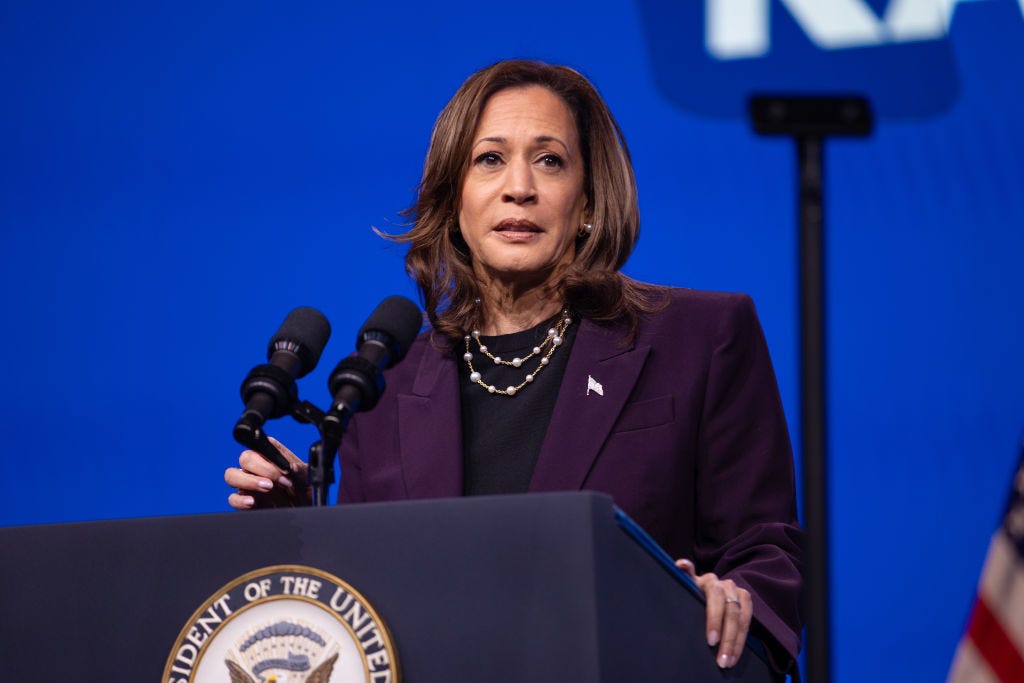Kamala Harris Ignored Big Corporate Monopolies. It May Have Cost Her the Election
Americans are angry about corporations screwing them over - and guess what? House Dems who ran against Big Utilities and Big Pharma actually won.

Who actually cares about corporate monopolies? Most Americans, it turns out.
Last April, the Rural Democracy Initiative commissioned a wide-ranging poll of swing voters in Arizona, Georgia, Michigan, Minnesota, Montana, New Hampshire, North Carolina, Ohio, Pennsylvania, and Wisconsin. They found a surprising result: 81% of those polled said they agreed with the statement a small handful of “corporate monopolies now run our entire economy.” Some of the policy proposals swing voters liked the most were proposals designed to stop monopoly abuse and curtail their power, like the right to repair, or efforts to take on meat-packing monopolies.
In August, More Perfect Union commissioned a poll of likely voters in Arizona, Georgia, Michigan, Nevada, North Carolina, Pennsylvania, and Wisconsin, slightly oversampling Black and Latino voters. When they were asked to give their views on seven different institutions, including the federal government and Project 2025, voters responded by singling out “corporate monopolies” as the most hated, with 79% having an unfavorable view.

Kamala Harris and most polling outfits ignored corporate monopolies. Unlike frontline Senate Democratic victor Ruben Gallego, she didn’t campaign with – or even publicly praise – popular FTC Chair Lina Khan. She didn’t rail against Ticketmaster’s abusive monopoly, and she didn’t go to farm country and promise to take on Big Agriculture or the fertilizer cartel.
She said she’d take on price gouging in August, but then backed off making monopolistic price abuses central after elite criticism. She didn’t promise to defend the federal ban on non-compete agreements, a centerpiece of the FTC and Biden administration’s assault on monopolies abusing workers.
After she lost, Adam Jentlesen argued in the New York Times that people pushing her to do more were “cosplay[ing] as populists by over-relying on niche issues like Federal Trade Commission antitrust actions.”
But the politicians who actually won – and those who got more votes than Harris in their respective districts – treated antimonopoly as the opposite of niche.
Democratic Overperformers Dug In
I looked at the campaigns of the top congressional overperformers to see how they dealt with antimonopoly. Overperformers are important, because most swing voters are not that engaged, and so most congressional candidates in most races are within a few points of the top of the ticket. If any candidate gets more than 5% more votes than the presidential candidate, that’s a really big deal.
Here are the top seven Democrats who fit into that category:



